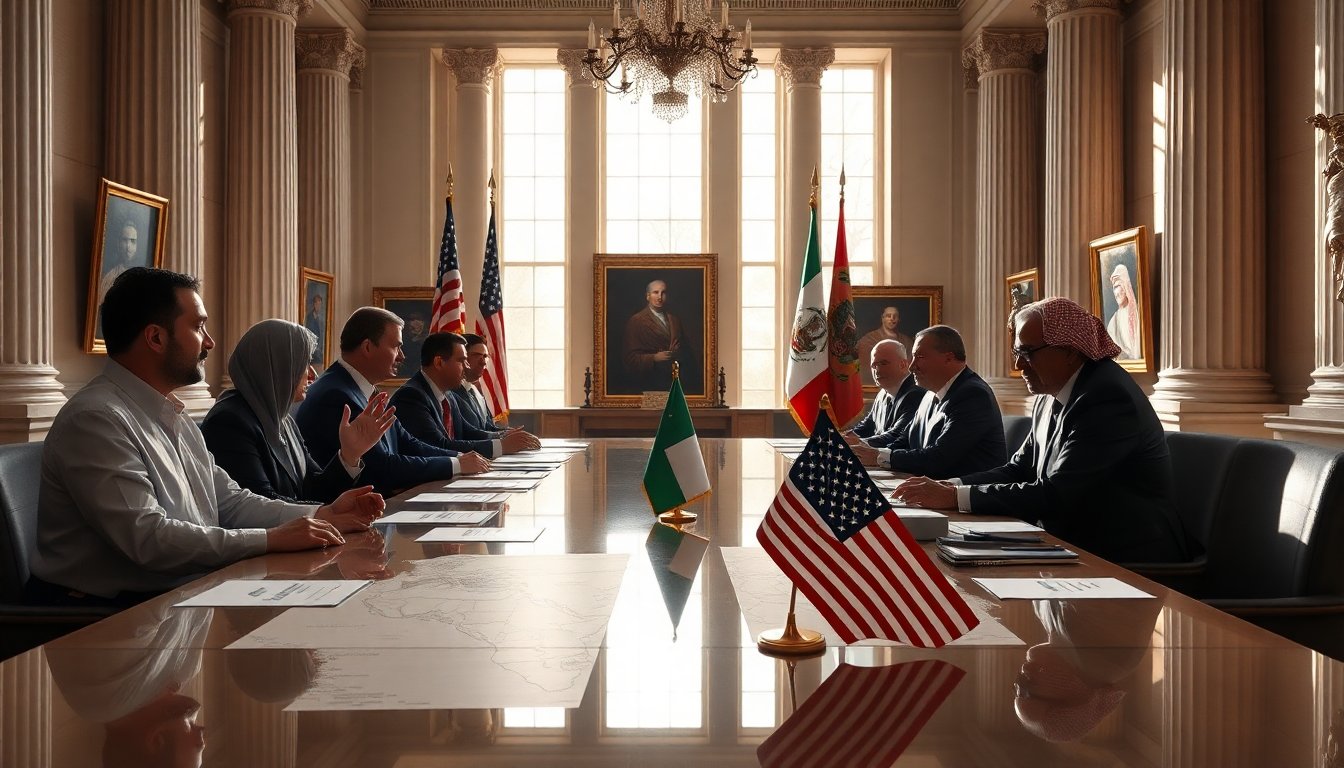Table of Contents
In an unexpected turn of events, Crown Prince Mohammed bin Salman, often referred to as MBS, has transformed his international standing, particularly in the eyes of the United States. Once considered a pariah due to his involvement in the controversial murder of journalist Jamal Khashoggi, MBS now finds himself at the center of diplomatic discussions following his recent visit to Washington, D.C.
This journey back into the political spotlight highlights the complexities of international relations and the shifting dynamics of power in the Middle East. His meeting with former President Donald Trump, marked by a lavish state dinner and significant military agreements, signals a new chapter in U.S.-Saudi relations.
The Khashoggi controversy and its aftermath
In October 2018, the brutal assassination of Jamal Khashoggi, a vocal critic of MBS, sent shockwaves through the global community. The gruesome details of Khashoggi’s murder at the Saudi consulate in Istanbul, where he was dismembered, painted a dark picture of the crown prince’s regime. Despite the Saudi government’s narrative of a rogue operation, U.S. intelligence has suggested that MBS was complicit in planning this heinous act.
Trump’s defense of MBS
During a press conference in the Oval Office, Trump faced pointed questions regarding the Khashoggi incident. However, he dismissed these concerns, highlighting MBS’s contributions to the kingdom and asserting that the crown prince had no prior knowledge of the operation. This defense raises eyebrows, considering the extensive evidence that implicates MBS in the murder.
Trump’s comments reflect a broader trend where political leaders are willing to overlook serious human rights violations for the sake of strategic alliances and economic benefits. As noted by analysts, this relationship is pivotal for both nations, particularly given Saudi Arabia’s strategic influence in the Middle East.
Shifting tides in diplomatic relations
Canada’s relationship with Saudi Arabia has been notably icy, especially after a diplomatic spat involving human rights issues. Calls for the release of jailed activists led to a significant deterioration of ties, culminating in the expulsion of Canada’s ambassador to Riyadh.
Despite this, there has been a shift in tone as Canada seeks to diversify its economic partnerships. As highlighted by Dennis Horak, former Canadian ambassador to Saudi Arabia, the kingdom’s vast resources and geopolitical importance cannot be ignored. Recent visits by Canadian officials to Saudi Arabia signify a thawing of relations, with discussions centered on trade and investment opportunities.
Economic implications of the renewed ties
Saudi Arabia’s ambitious Vision 2030 initiative aims to diversify its economy beyond oil dependency. This has led to increased opportunities for foreign investment, particularly in sectors such as renewable energy, advanced manufacturing, and food production. Canadian companies, especially in the agriculture sector, are seen as key players in helping Saudi Arabia achieve its goal of becoming a major food hub in the region.
In recent years, trade between Canada and Saudi Arabia has seen a resurgence, with armoured vehicles being Canada’s largest export to the kingdom. In turn, Saudi Arabia remains a significant supplier of oil to Canada, further intertwining the two economies.
Social reforms amid ongoing criticisms
While MBS has introduced reforms that have empowered women and improved social freedoms, critics remain wary. Human rights organizations continue to raise alarms over the kingdom’s treatment of dissenters and the high execution rates. The balance between social progress and political repression remains a contentious issue.
This journey back into the political spotlight highlights the complexities of international relations and the shifting dynamics of power in the Middle East. His meeting with former President Donald Trump, marked by a lavish state dinner and significant military agreements, signals a new chapter in U.S.-Saudi relations.0
This journey back into the political spotlight highlights the complexities of international relations and the shifting dynamics of power in the Middle East. His meeting with former President Donald Trump, marked by a lavish state dinner and significant military agreements, signals a new chapter in U.S.-Saudi relations.1


